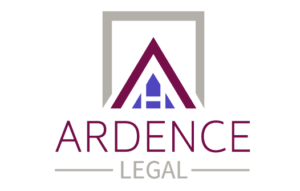- Resources
Links
Terms
We aim to ensure small business owners know the basic terms of art in business. Here are a few terms we think will be helpful.
LLC (Limited Liability Company)
A business structure that provides limited liability to its owners while allowing operational flexibility and pass-through taxation.
Sole Proprietorship
A business owned and operated by a single individual, where there is no legal distinction between the owner and the business.
Partnership
A business arrangement where two or more individuals share ownership, profits, and liabilities of a business.
Articles of Incorporation
A document filed with the state to formally establish a corporation, detailing basic information about the business and its structure.
Operating Agreement
An internal document among LLC members outlining the management structure, member roles, and operational procedures.
Bylaws
Internal rules and procedures for the operation and management of a corporation, typically adopted by the board of directors.
Employment Agreement
A contract between an employer and an employee outlining the terms of employment, including duties, compensation, and termination provisions.
Non-Disclosure Agreement (NDA)
A legal contract ensuring that one party keeps certain information confidential and does not disclose it to third parties.
Trademark
A recognizable sign, design, or expression that distinguishes products or services of a particular source from those of others and is legally registered for protection.
Compliance
Adherence to laws, regulations, and guidelines relevant to business operations, ensuring that the business meets all legal obligations and standards.
Useful Information
What is an LLC?
A Limited Liability Company (LLC) is a popular business structure that combines the liability protection of a corporation with the tax benefits and flexibility of a partnership or sole proprietorship. LLC owners, known as members, are shielded from personal liability for business debts and claims. This structure is ideal for small businesses due to its simplicity and flexibility in management.
Key Benefits of an LLC:
- Limited personal liability
- Pass-through taxation
- Flexible management structure
- Minimal compliance requirements
LLC:
Feature | Description |
Liability Protection | Protects members from personal liability |
Taxation | Pass-through taxation |
Management Flexibility | Flexible management structure |
Formation Requirements | Minimal compliance requirements |
Suitable for | Small to medium-sized businesses |
Useful Links:
IRS: Limited Liability Company (LLC) https://www.irs.gov/businesses/small-businesses-self-employed/limited-liability-company-llc
Small Business Administration: LLC https://www.sba.gov/business-guide/launch-your-business/choose-business-structure
What is an S Corp?
An S Corporation (S Corp) is a special type of corporation that allows income, losses, deductions, and credits to pass through to shareholders for federal tax purposes. This avoids the double taxation faced by C Corporations, where income is taxed at both the corporate and individual levels. S Corps offer liability protection for shareholders but have more rigid operational processes compared to LLCs.
Key Benefits of an S Corp:
- Pass-through taxation
- Limited liability protection
- Potential tax savings on self-employment taxes.
S Corp:
Feature | Description |
Liability Protection | Limited liability for shareholders |
Taxation | Pass-through taxation |
Operational Requirements | More rigid than LLCs |
Eligibility | Must meet specific IRS criteria |
Suitable for | Businesses looking for tax savings on self-employment taxes |
Useful Links:
IRS: S Corporations: https://www.irs.gov/businesses/small-businesses-self-employed/s-corporations
Small Business Administration: S Corporation: https://www.sba.gov/business-guide/launch-your-business/choose-business-structure
What is a Trademark?
A trademark is a symbol, word, or phrase legally registered or established by use as representing a company or product. Trademarks protect brands and ensure that consumers can distinguish between different products and services in the market. Registering a trademark provides legal protection against unauthorized use and helps build brand identity and loyalty.
Key Benefits of a Trademark:
- Legal protection against infringement
- Brand recognition and loyalty
- Exclusive rights to use the mark nationwide
Trademark:
Feature | Description |
Legal Protection | Protection against infringement |
Brand Recognition | Helps build and protect brand identity |
Exclusive Rights | Exclusive nationwide rights to use the mark |
Registration | Requires application with USPTO |
Suitable for | Any business looking to protect its brand |
Useful Links:
USPTO: Trademarks: https://www.uspto.gov/trademarks
Small Business Administration: Trademark: https://www.sba.gov/business-guide/launch-your-business/choose-your-business-name
Employee vs. Contractor
Understanding the difference between an employee and an independent contractor is crucial for compliance with labor laws and tax regulations. Employees work under the control and direction of the employer, receive benefits, and are subject to employment taxes. Contractors, on the other hand, operate independently, provide their services to multiple clients, and are responsible for their own taxes and benefits.
Key Differences:
- Control: Employees are directed by the employer; contractors control their work.
- Benefits: Employees receive benefits; contractors do not.
- Taxes: Employers withhold taxes for employees; contractors handle their own taxes.
Employee vs. Contractor:
Feature | Employee | Contractor |
Control | Directed by employer | Controls own work |
Benefits | Receives benefits from employer | Does not receive benefits |
Taxes | Employer withholds taxes | Responsible for own taxes |
Employment Relationship | Long-term, ongoing | Short-term, project-based |
Suitable for | Ongoing roles | Specialized, temporary tasks |
Useful Links:
IRS: Independent Contractor (Self-Employed) or Employee?: https://www.irs.gov/businesses/small-businesses-self-employed/independent-contractor-self-employed-or-employee
Small Business Administration: Hire Employees vs. Independent Contractors: https://www.sba.gov/business-guide/manage-your-business/hire-manage-employees
What is an EIN?
An Employer Identification Number (EIN) is a unique nine-digit number assigned by the IRS to businesses for tax filing and reporting purposes. Also known as a Federal Tax Identification Number, it is used to identify a business entity and is required for most business activities, including hiring employees, opening business bank accounts, and filing taxes.
Key Uses of an EIN:
- Filing business taxes
- Hiring employees
- Opening a business bank account
- Applying for business licenses and permits
EIN:
Feature | Description |
Purpose | Identifies business for tax purposes |
Required For | Hiring employees, opening business bank accounts, filing taxes |
Application | Can be applied for online through IRS |
Cost | Free |
Suitable for | All business entities |
Useful Links:
IRS: Apply for an Employer Identification Number (EIN) Online: https://www.irs.gov/businesses/small-businesses-self-employed/apply-for-an-employer-identification-number-ein-online
Small Business Administration: Employer Identification Number (EIN): https://www.sba.gov/business-guide/launch-your-business/get-federal-state-tax-id-numbers
